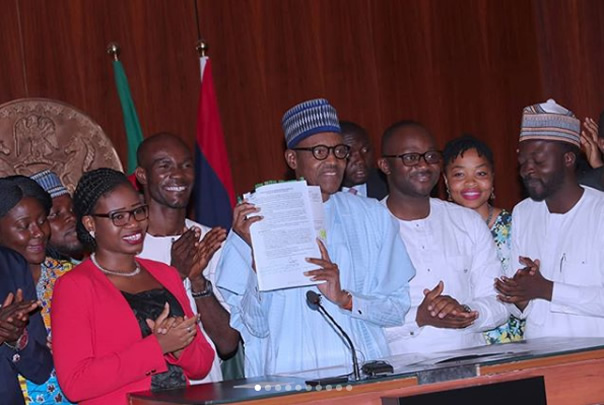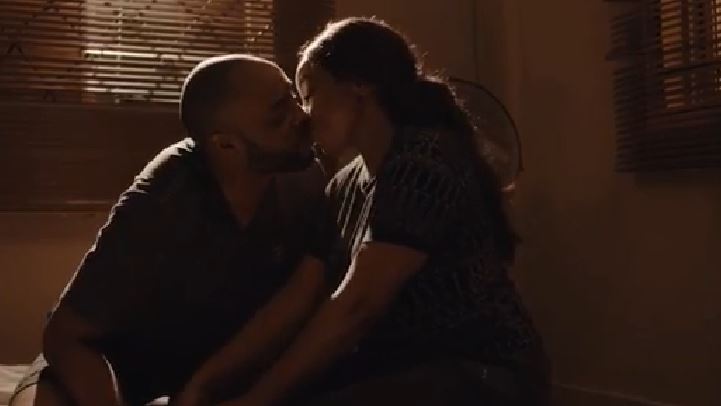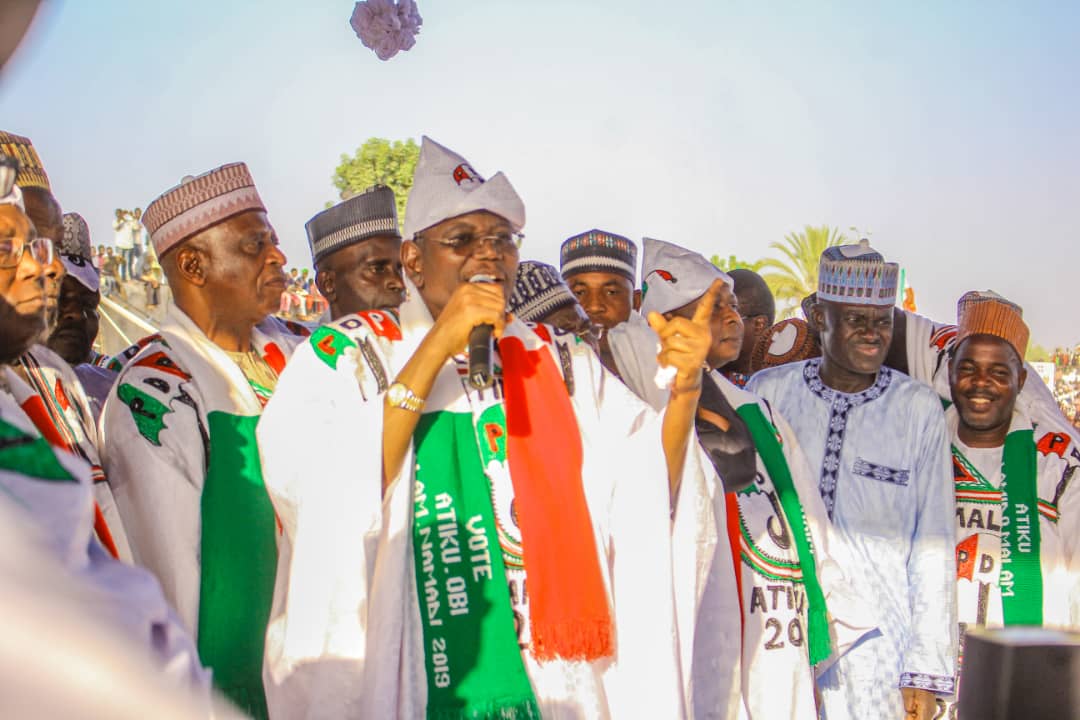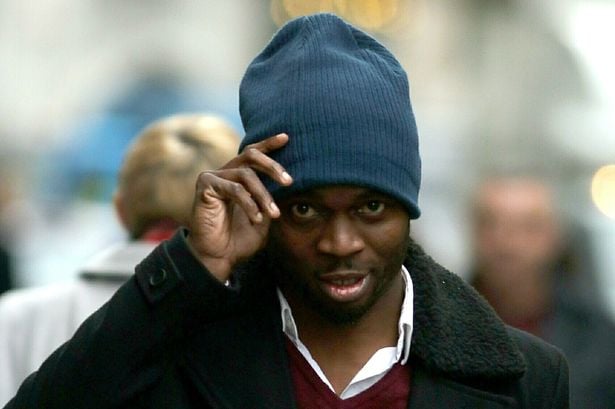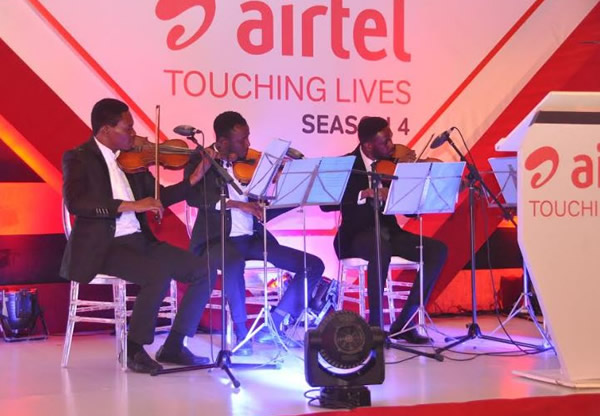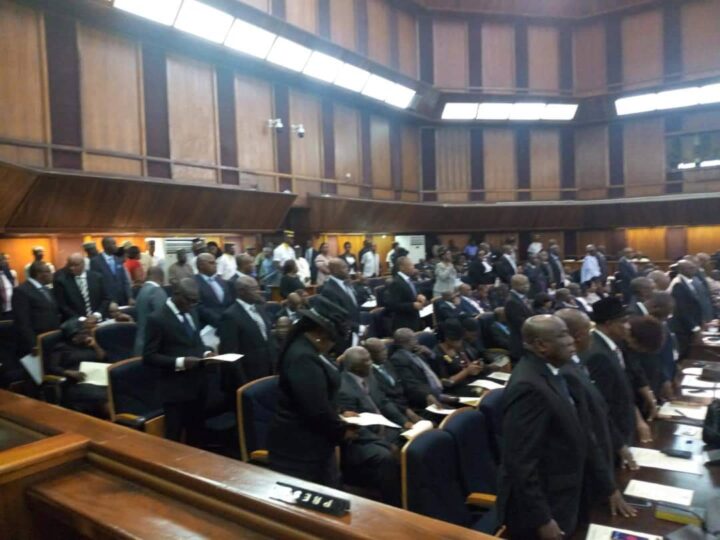There is still a low level of youth participation in Nigeria’s politics despite the introduction of Not Too Young to Run law.
The law, signed in 2018 by President Muhammadu Buhari, reduced the age qualification for various elective positions; that of the office of the president was reduced from 40 years to 30 years; age for the office of house of representatives from 30 years to 25 years; and that of state house of assembly from 30 years to 25 years.
Age qualification for office of governor and senator remained between 35 years and 30 years.
But while the attention for youth activeness in politics has largely been at the national assembly, statistics show Nigeria still has a long way to go, even with youth constituting 51 percent of the 84 million registered voters.
Advertisement
In 2015 when the law had not been introduced, youth candidates in the senate and house of representatives were 10 percent and 18 percent respectively.
Then fast forward to 2019, data obtained by the Ready to Run movement showed that of the 1,904 candidates contesting for various seats at the senate, only 253 of them – representing just 13 percent – are youth (18 to 35).
The situation is slightly better at the house of representatives where 1,262 of the 4,680 candidates are youth, representing 27.4 percent.
Advertisement
FEMALE CANDIDATES MISSING IN ACTION
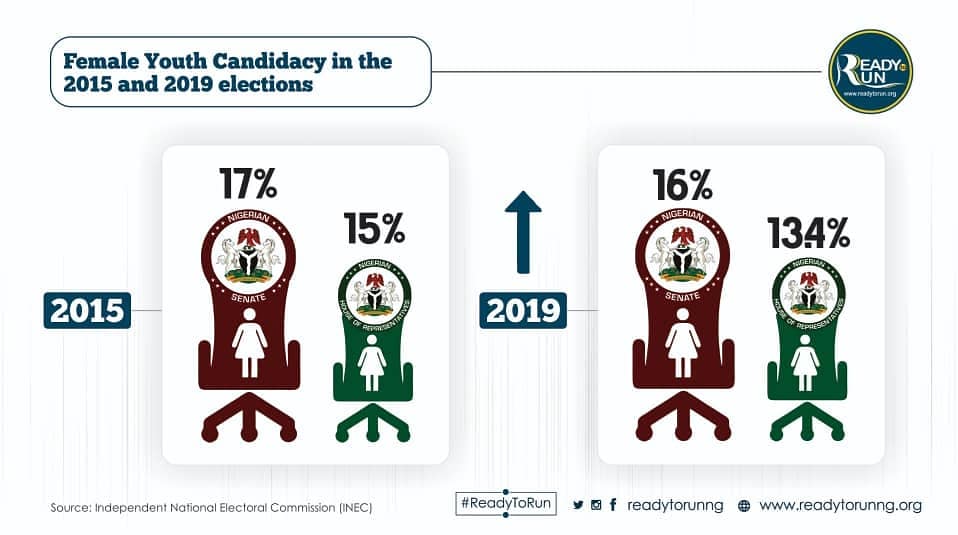
Ironically, there is a worse record of female youth candidature at both the senate and house of representatives when compared to what was in place in 2015. Of the 1,904 candidates for the upper legislative chamber, only 16 percent of them are female youth, compared to the 17 percent in 2015. At the green chamber, the number of female youth also reduced from 15 percent to 13.4 percent now.
Advertisement
For zonal representation, north-west leads in youth participation at the national assembly with 34.8 percent of candidates for senate and 30.7 percent for house of representatives. South-west has lowest number of the youth population among the candidates for the senate with just 10.3 percent while north-east comes lowest in house of representatives with 9.7 percent.
Interestingly,statistics show that the All Progressives Congress (APC) and Peoples Democratic Parties (PDP), Nigeria’s leading political parties, are not giving enough room for youth participation in politics, especially with huge prices for their nomination forms.
A BREAKDOWN OF PARTIES GIVING OPPORTUNITY TO YOUTH
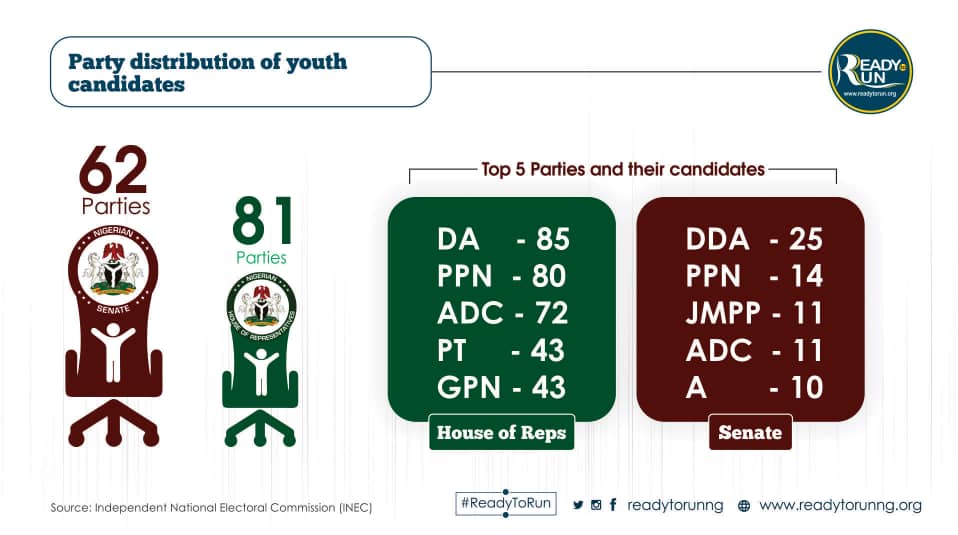
Advertisement
Democratic Alternative (DA) leads with highest number of youth candidates at the house of representatives with 85, followed by Peoples Party of Nigeria (PPN) with 80 youth; African Democratic Congress (ADC) comes third with 72 while Peoples Trust and Green Party of Nigeria (GPN) have 43 youth candidates each.
At the senate, DA still leads with 25 candidates followed by PPN with 14 candidates. Justice Must Prevail Party (JMPP) and ADC follow with 11 youth candidates each.
Advertisement
What about presidential candidates, you may ask? This might give you some headache: Only two candidates out of the 73 presidential candidates are youth: Nsehe Nseobong of Restoration Party (RP) at 33, and Chike Ukaegbu of Advanced Allied Party (AAP) at 35. Unbelievable.
Advertisement
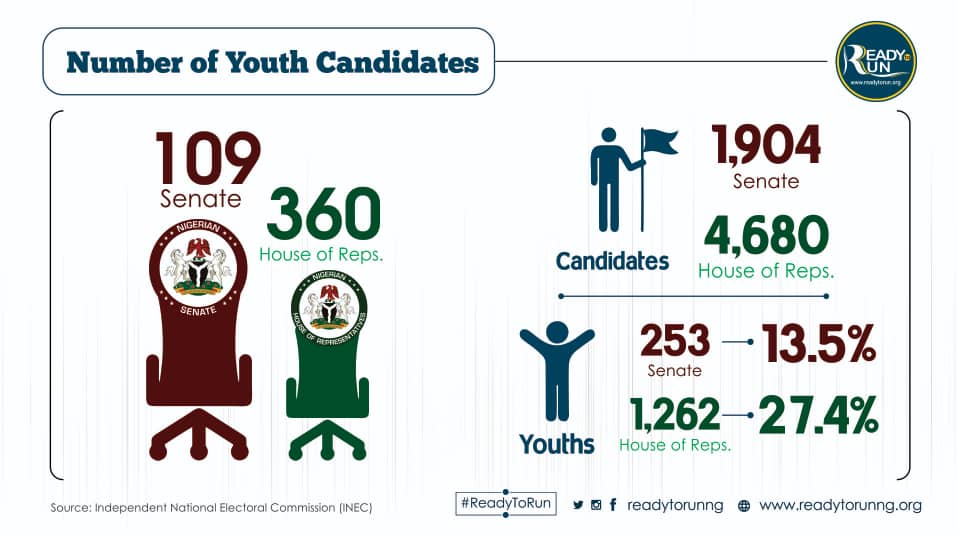
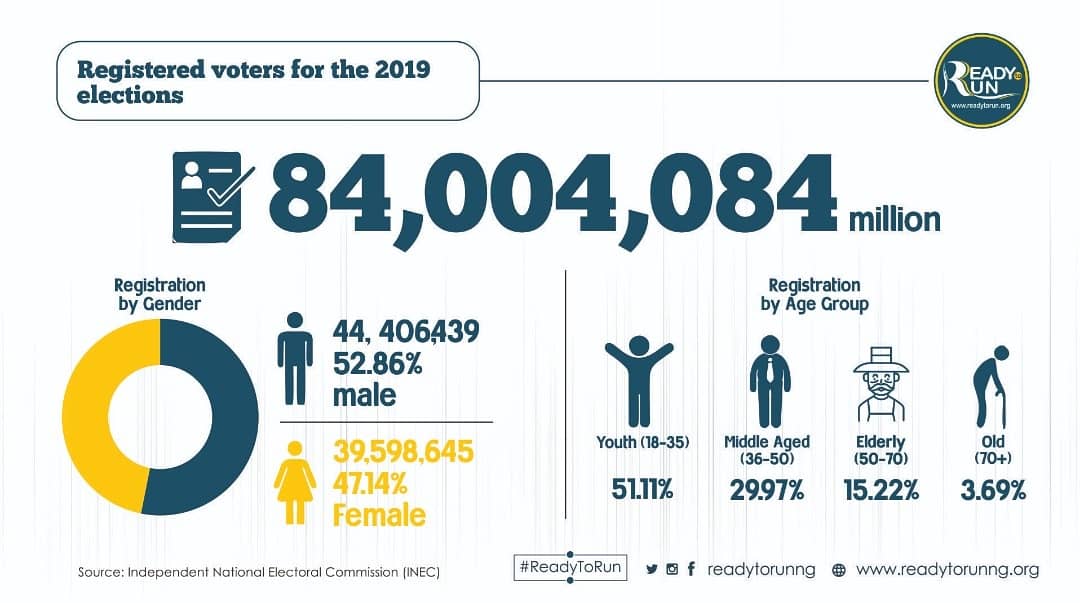
Advertisement
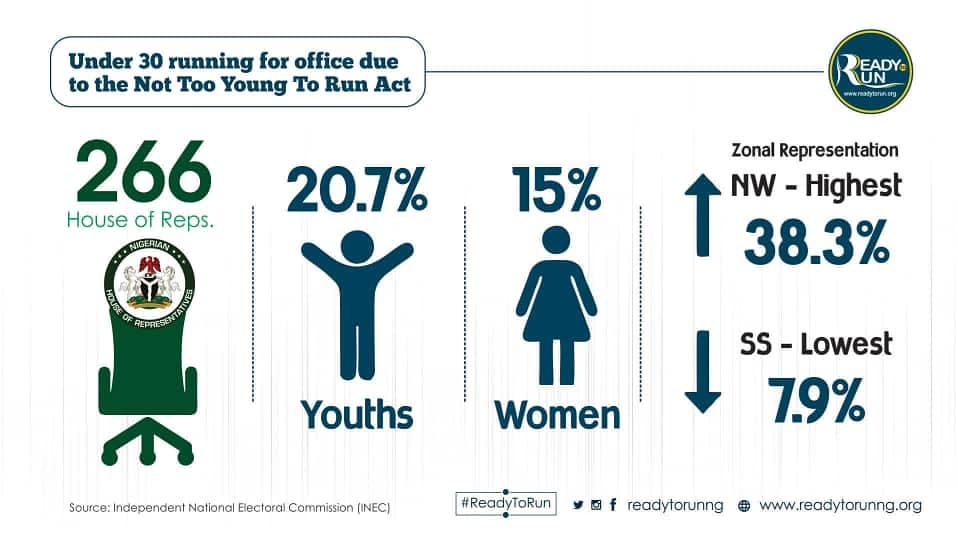
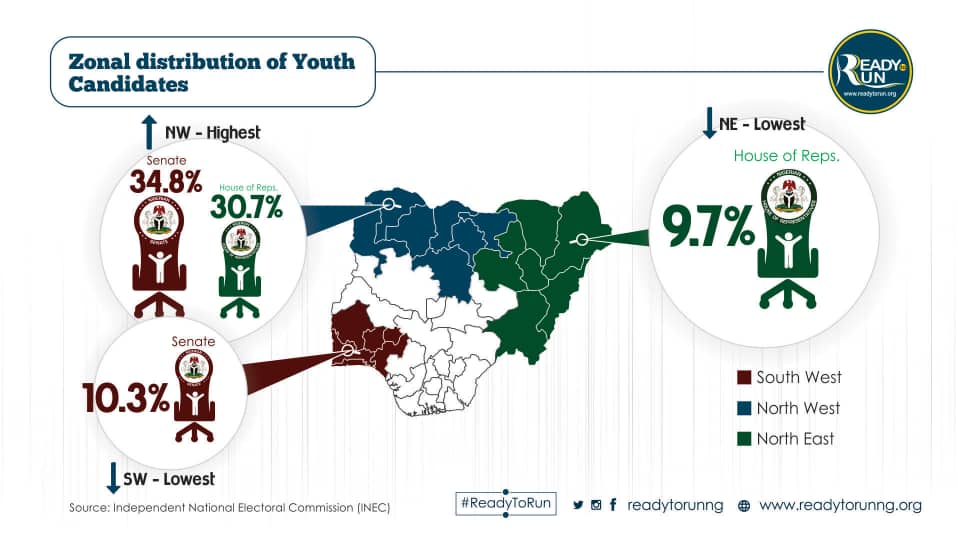
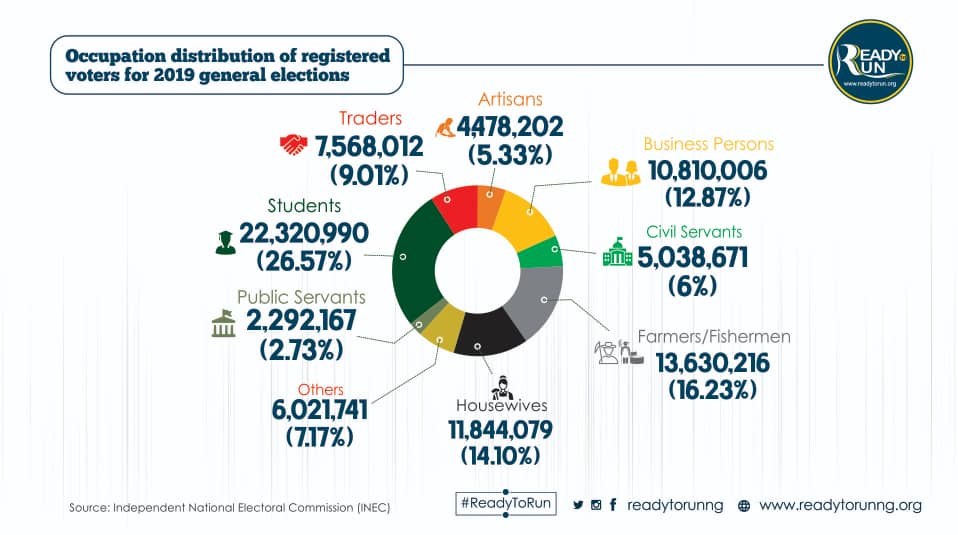
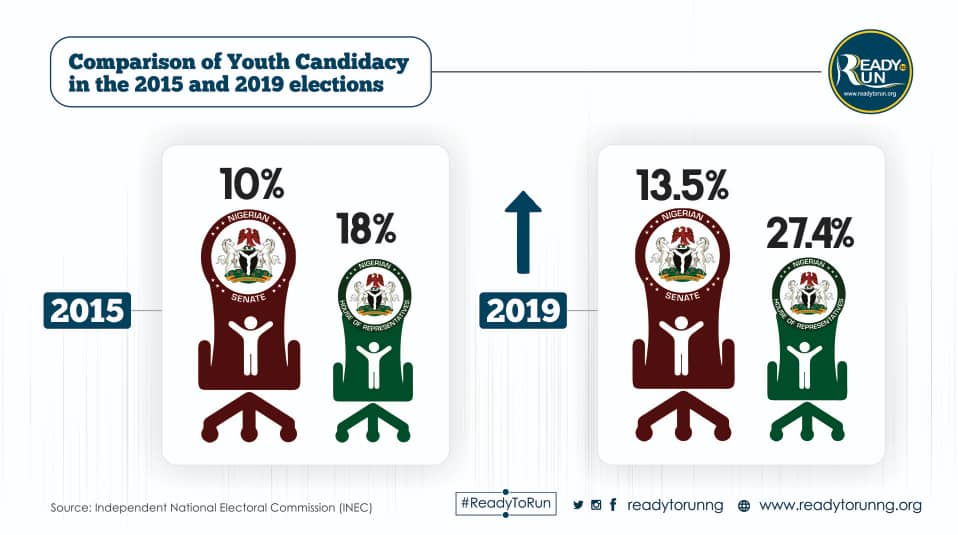
NIGERIA STILL FAR BEHIND
Recent years have seen an upsurge in the number of youth getting actively involved in politics and participating in governance and democratic process. This has encouraged even more emergence of young leaders in various countries of the world.
For instance, while Austrian Chancellor Sebastian Kurz is the world’s current youngest leader at 32 (elected at 30), Alexandria Ocasio-Cortez became the youngest woman elected to the United States Congress at age 29. Many nations have members of parliament who are as young as 22: similarly, at 31, Luigi DiMaio is a current deputy prime minister in Italy while Mhairi Black, a British member of parliament from Scotland, was in 2015 elected a lawmaker at the age of 20.
The situation is, however, the opposite in the case of Nigeria where, going by the available data, the youth rarely get a chance in the democratic process. The current administration, for instance, has absolutely no single youth among the ministers, with all of them, mostly when originally appointed, well in their middle and late 40s much less state governors who are all well above this age. After the 2015 elections, a good number of the youth were appointed as mere aides, a far cry from the situation of Nigeria years back when at just 32, Yakubu Gowon became Nigeria’s head of state in 1966.
This goes to show that even with the Not Too Young To Run law, Nigeria still has a long way to go in terms of achieving youth inclusion.
Add a comment

